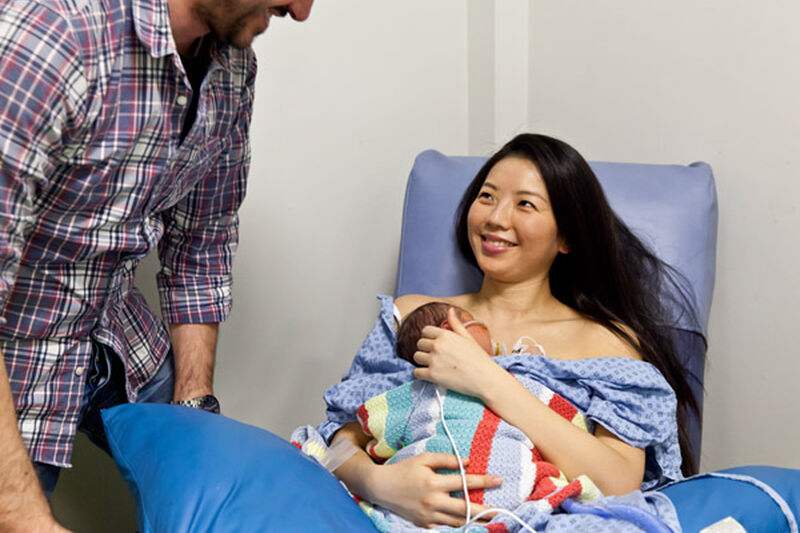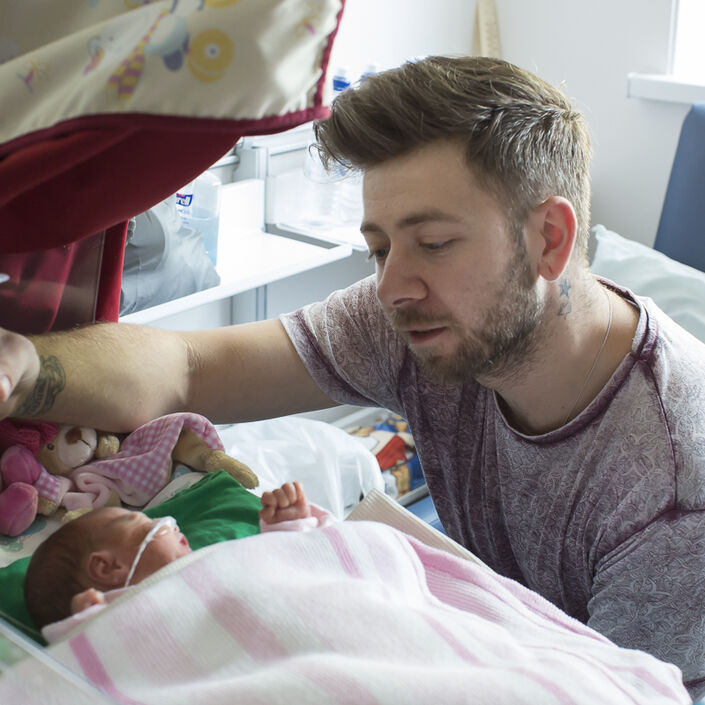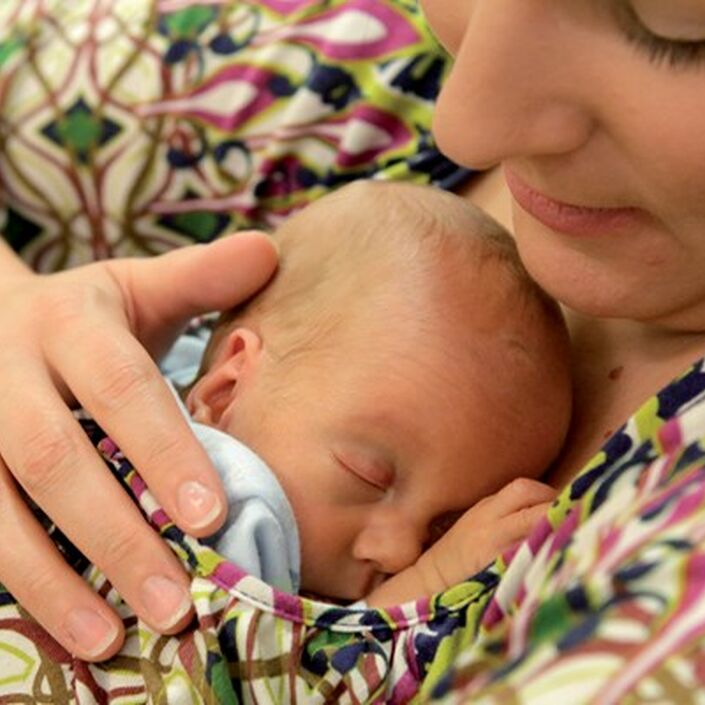Knowing how to support someone when their baby is in hospital can be extremely difficult. Mums Laura and Holly both had premature babies who spent nine and half weeks on the neonatal unit. Now they’d like to share their top tips on lending a hand during this time.
Offer to cook a meal
Many parents end up spending a lot of money on hospital food or missing meals as most of their time is spent on the neonatal unit, so offering to cook a meal can be much appreciated.
Help by running errands
Offering to walk the dog or do the washing can be a huge help to parents who are juggling unit visits with life and work. Laura says, “Offering practical help is a good thing to do, but can be difficult to accept it. If my friend didn’t just do it without asking, I would have probably said ‘don't worry’, even if I really wanted the help."
Babysit other children
Some families may have older children who need babysitting or picking up from school. It could be a huge help to offer this support to them.
Update friends and family
Offering to update friends and family about the baby’s progress can also help. Laura says, “I found it particularly hard having to spend time on my phone everyday giving people updates, when there usually weren't any. It was difficult to send a message saying everything is "fine" when it really didn't feel like it.”
Wait to be invited to visit
Holly says, “Each time someone visited we felt drained. It zapped our energy ensuring they followed all of the rules. We spent a lot of time feeling guilty about turning down people for visiting but we needed the space.”
If you do visit always abide by visiting hours and familiarise yourself with the unit’s rules and guidelines, for example on how to wash your hands.
Respect privacy and boundaries
Acknowledging the need for privacy and personal space is key. You can do this by not touching the baby unless invited to and not looking into other babies’ incubators. Also try not to be offended if the family needs a moment alone with each other or with a health professional.
Avoid medical questions
Try not to ask too many medical questions, this may be private or sensitive and a parent will share this with you if they want to.
Know what to say
It can be difficult to know what to say but a good rule is to say what you would say to any other parent, for example, “Your baby is so cute!”, “They looks just like you”, etc. Avoid saying how tiny the baby is or what you read on the internet about premature or sick babies.
This is a feature from our magazine, Little Bliss. Send your advice or top tips to little@bliss.org.uk or tweet @blisscharity using the hashtag #littlebliss


